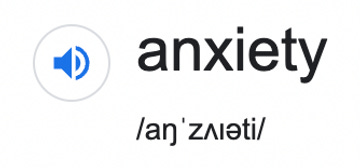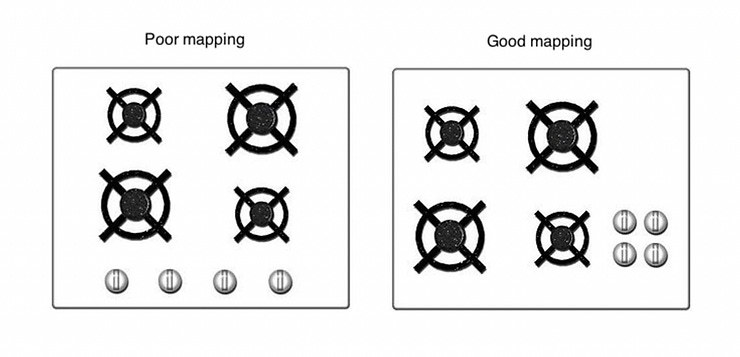A Language Problem
It happens too casually to get noticed
I like watching standup comedy. And undoubtedly, Abhishek Upmanyu is my favourite. He is so good because he can understand human behaviour really well.
Recently, I was watching one of his videos which was not only hilarious but it was very insightful as well. It touched upon a topic around speaking English and Pronunciation. (You can watch it here if you have not seen it yet)
The joke is hilarious and a hit set because it is relatable. We all have friends (or we are that friend) who will make jokes about someone's poor pronunciation.
Here he takes a good example as the "Receipt" Vs "/rɪˈsiːt/" problem that generally happens. Communication was done but the person was corrected by his friend as if he made a big mistake by not pronouncing the word correctly.
In a recent gathering with my close friends, I was corrected for something similar. That day, out of anxiety, I ended up calling "anxiety" as "anxiety" which was a big mistake, and we all had a good laugh at my expense.
I was slightly embarrassed that day. But ignored it then (like every other time), learnt the right way and moved ahead. Still, it did trigger a thought which made me write this today.
Coming back to Anxiety, here is how Google says one should pronounce Anxiety. Yes, it requires an extra phonetic spelling which is mentioned as /aŋˈzʌɪəti/
In fact, there is a YouTube video to show, how to pronounce anxiety with 14000+ views. Clearly, a lot of people end up saying it wrong or need help!
So, that made me think, if pronouncing a word requires so much assistance, is it my problem or the problem of language?
I have been speaking Hindi for more than 30 years now. That's the only language I know- at home, in my school, in my state, everywhere that's the language most of the people around me use.
Not even once, I have been corrected that I made a wrong pronunciation or उच्चारण (Uccharan) when I am speaking Hindi. Give me any document written in Devanagari script, full of words that I have never used before and I am pretty sure that I will be able to read it well in the first go. No need to have an extra phonetic spelling.
Do the same experiment with me for English, I am sure at least 5% of the words will be stuck if I have not come across or you have not provided phonetic spelling against each new word. (By the way, I learnt reading phonetics in 1st year engineering, thanks to a course on communication skills)
Honestly speaking, how would I know H is silent in Honest or T in Tooth is different from T in Organisation?
If I can pronounce well in one language and not another language then it is not my problem it is a language problem.
People laugh at others when they are used to using English for long. They will say, these are exceptions and people should have known this exception. If you don't know H is silent in Honest then you are not well-read or at times considered not well educated. It is so obvious to them that they start laughing when someone makes a pronunciation error.
I remember, how Inorganic chemistry was considered inferior to Organic chemistry or Physics when we were in class 11/12th. People used to say Inorganic chemistry is for muggers and if you are good at Inorganic chemistry, you will be labelled as someone not good in Maths or logic.
Reason- Inorganic chemistry is full of exceptions. The same rule which is applicable to one element or bonding structure is not applicable to the next one. Something like English, where there are so many exceptions in what we write vis a vis their pronunciation. But the same people, who come from good schools or were exposed to English speaking from childhood, will laugh when one makes the honest mistake of not knowing an exception and when they take science in 11th start blaming inorganic chemistry as an illogical subject, full of exceptions!
The problem is this:
English is not Phonetic
Some languages are "phonetic". That means you can look at a written word and know how to pronounce it. Or you can hear a word and know how to spell it. With phonetic languages, there is a direct relationship between the spelling and the sound.
This is coming straight from this page and it highlights, how the problem is of the language and not of the user. Blaming or insulting a user for this is a mistake we all are making here. Let me give you another example. Consider this. You are reading this blog and you very well know that if you move your thumb up, the page will come down and vice versa. But, let's say I made a change today. I reversed it. When you move your thumb up, the page will also go up (towards the heading). I find this is more logical- thumb up, page up, thumb down, page down. Right? If I do this, a lot of us will shout at me for designing it poorly. You will not accept that the mistake is yours as you cannot remember that my blog is an exception. Your friends will not laugh at you as this is not your mistake. Then why accept when it comes to English?
Don Norman's book: The design of everyday things explains it really well. It is not a mistake of a user if the product is not used the right way. They are not supposed to learn something and come. It is our responsibility to design the products to work in a manner that anyone can use it right without any instructions.
An example of a bad design. Users should not be blamed if they start the wrong burner.
I see, a few designers and developers in internet companies make this mistake, When we pass the feedback that users don't know what to do after a step, they start laughing at the user's ignorance or lack of understanding as they find something intuitive. It is not a user problem but a problem of the creator.
We all are users of a language. And English is just another language or a product.
While it is a great language, global with wide adoption and critical to learn and use for success in today's world, it has its own set of challenges like not being a phonetic language.
That's a shortcoming of English which makes it at times confusing if someone is not familiar enough with the differences. We must accept and address it is a language problem and not the problem of the user if they end up pronouncing it wrong. No point in being judgemental or making that casual joke.
If we do so, we might unknowingly be playing with the confidence of someone and being unfair to make that person pay for a faulty design. We all want to be fair. However casual, we must be careful not to make fun of someone's pronunciation. And as Upmanyu says- "If the population is the game, then why not call C.A.T as Dog!" That's all for today. Laugh on good jokes, not on silly pronunciations :)


